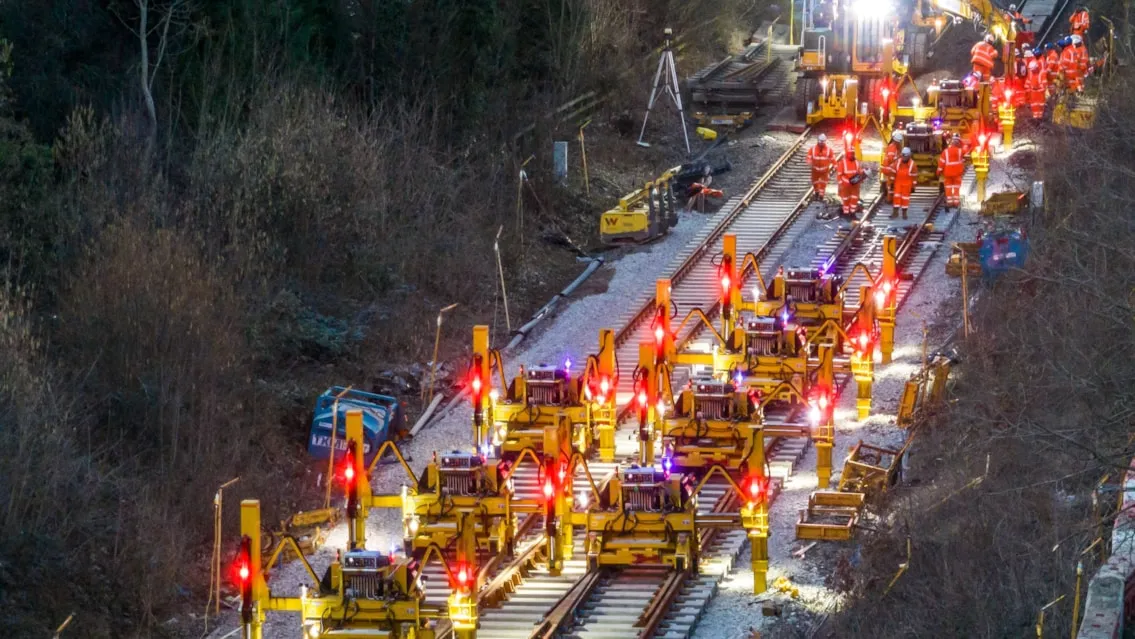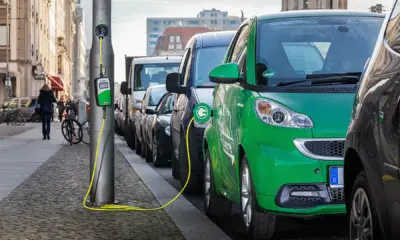Business
UK transport network prepares for major upgrades

The United Kingdom is preparing for one of its most wide-ranging phases of transport development in recent years. The national transport network, which includes railways, roads, airports, and local mobility systems, is set to undergo comprehensive upgrades aimed at improving efficiency, safety, and long-term sustainability. These developments come at a time when the country is focused on strengthening economic activity, reducing travel barriers, and creating more reliable connections between major cities and regional hubs. With growing population needs and rising demand for modern infrastructure, policymakers and transport authorities are moving forward with plans that support national progress and everyday convenience for millions of travellers.
Improved rail capacity remains a major priority
Rail travel continues to play a central role in the UK transport ecosystem, and upcoming upgrades are designed to expand capacity while improving reliability. Several intercity routes are expected to receive modern signalling systems that allow trains to operate more efficiently. Authorities are also investing in new electric and hybrid fleets designed to reduce energy consumption and enhance passenger comfort. Maintenance programmes will target older tracks and bridges that have required long overdue improvements. These efforts aim to create smoother and more predictable journeys for commuters, tourists, and business travellers. Many regions welcome the upgrades, seeing them as essential steps for economic development and stronger local connectivity.
Urban mobility improvements support growing populations
Cities across the UK are experiencing rising demand for better mobility options. Transport agencies have outlined plans to expand bus routes, improve traffic flow, and introduce modern ticketing systems that create seamless travel experiences. Many urban areas are also investing in smart transport technology that uses real time data to manage congestion and improve journey planning. These upgrades are expected to ease pressure on crowded routes while offering more dependable alternatives for residents. The growing emphasis on sustainable city transport reflects a wider effort to reduce environmental impact and promote healthier urban living.
Road network upgrades focus on safety and efficiency
Road improvements form another important part of the national upgrade strategy. Several motorways and regional roads are set to receive major maintenance and widening work intended to reduce bottlenecks and support smoother traffic flow. Transport officials are prioritising safety features such as improved lighting, clearer signage, and enhanced barrier systems. These upgrades aim to reduce accident rates and create a more predictable driving experience for motorists. With road freight playing a vital role in UK commerce, better road conditions will also help logistics companies operate more efficiently and reliably.
Airports prepare for modern infrastructure demands
Airports in London and regional hubs are preparing for infrastructure improvements that support rising passenger numbers and modern aviation needs. Upgrades include advanced security systems, improved check in processes, and expanded boarding areas. Many airports are integrating digital technologies that offer better communication, enhanced customer guidance, and more efficient baggage management. The aviation sector is also investing in more sustainable ground operations, including energy efficient equipment and expanded use of electric vehicles. These changes are aimed at enhancing the travel experience while supporting the long term growth of the UK aviation industry.
Advancing sustainable transport initiatives
Sustainability remains at the centre of many upgrade plans. Transport agencies are working to expand electric vehicle charging networks across cities and highways. New bike lanes, pedestrian friendly zones, and green transport corridors are being included in development plans. Rail electrification projects are gaining momentum as part of the country’s broader commitment to cleaner transport solutions. Authorities aim to balance mobility needs with environmental responsibility, encouraging the public to adopt greener travel habits that support long term climate goals.
Preparing for future population and business needs
The upcoming transport upgrades are being planned with future generations in mind. Policy makers recognise that travel needs will continue to evolve as populations grow, businesses expand, and technology advances. The goal is to create a transport system that remains flexible, scalable, and capable of handling rising demand. Infrastructure investments are expected to support regional economic development, improve labour mobility, and attract new business opportunities. A modernised transport system will also help strengthen the UK’s position as a competitive global economy.
Collaboration between government and industry
The success of these national upgrades relies on cooperation between government authorities, engineering firms, technology providers, and regional councils. Shared planning and sustained funding are essential to ensure timely implementation. Many industry leaders welcome the collaborative approach, noting that well coordinated transport improvements benefit the entire country. Continued engagement between public and private partners will help maintain momentum and address challenges as the projects progress.
A long term vision for national connectivity
The UK’s commitment to upgrading its transport network reflects a long term vision focused on resilience, sustainability, and national growth. As infrastructure improvements take shape, travellers are expected to experience more reliable services, smoother journeys, and better access to opportunities across the country. These upgrades represent an investment in the future and a recognition of the essential role that transportation plays in shaping economic and social progress.


















